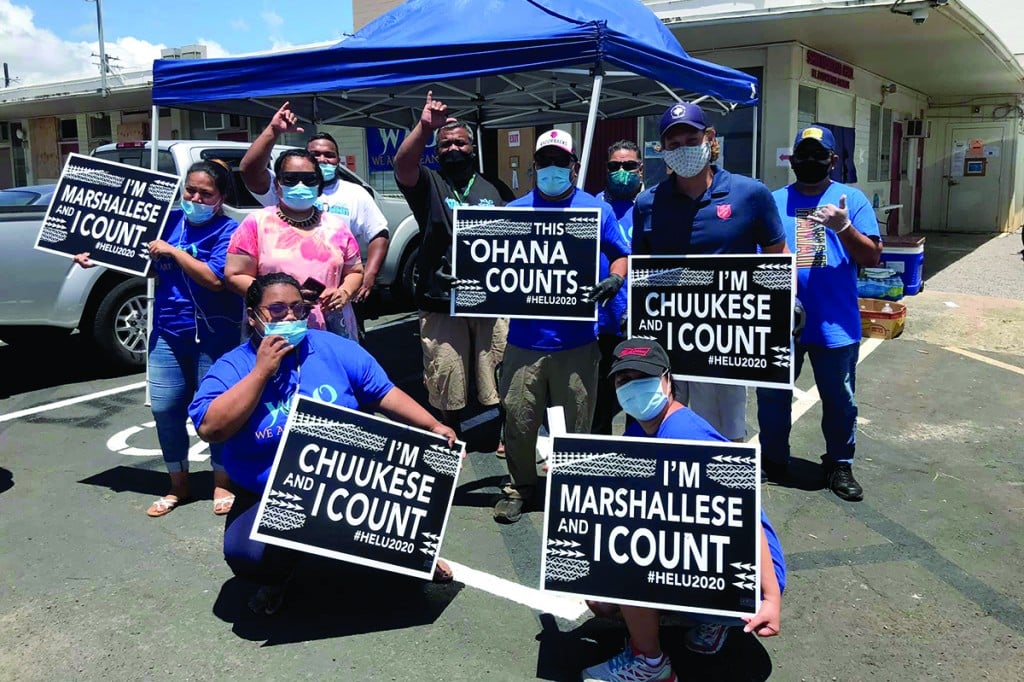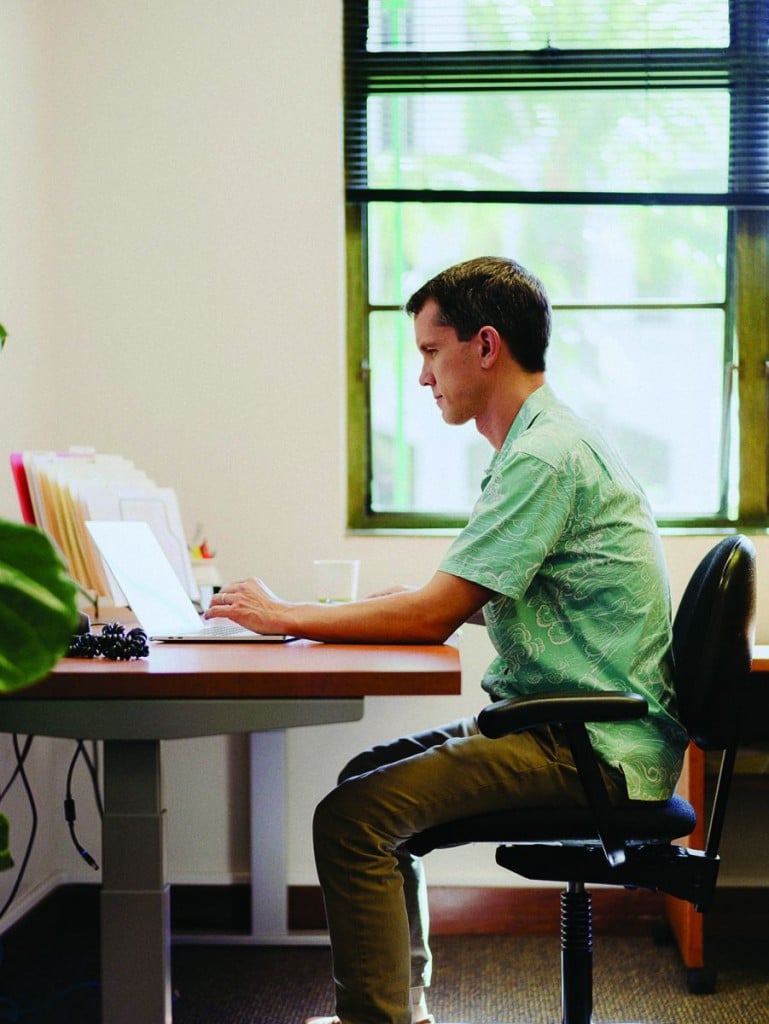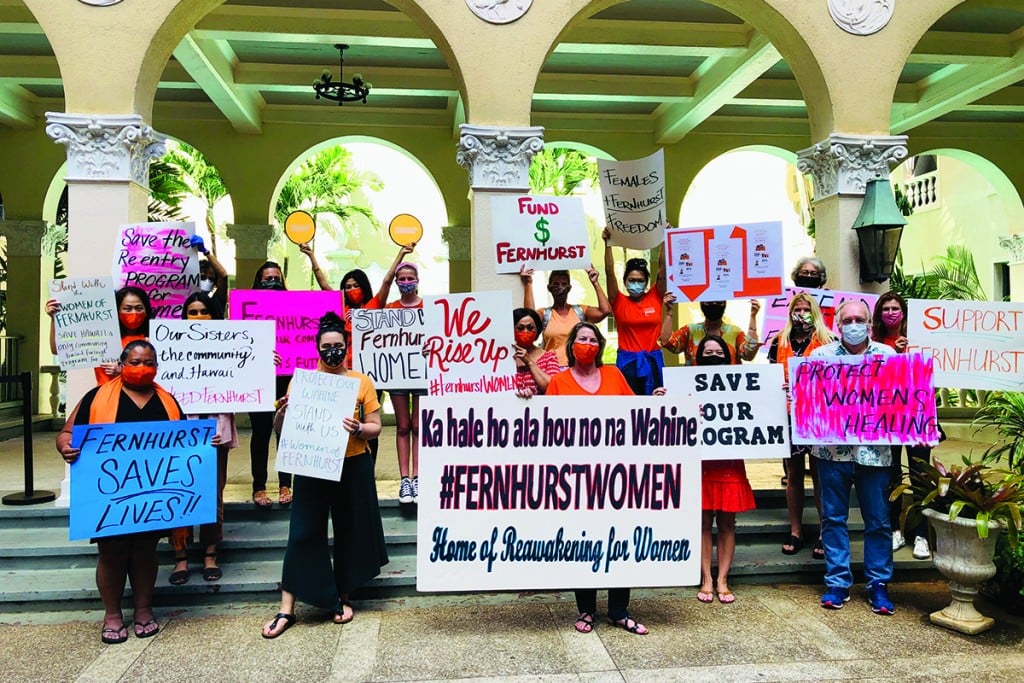Drug Addiction: When Prescriptions Designed to Heal Become the Ultimate Deception
The story of one Hawaiʻi man who, with the help of the Institute for Human Services, broke the chains of addiction.

Vaughn was in his senior year at the University of Hawaiʻi at Mānoa—a straight-A dean’s list student on his way to a degree in social work—when a car accident left him with a badly broken jaw and opioid prescriptions for the pain. What was supposed to help him heal became an addiction.
“I walked away from senior year strung out, addicted and buying pills off the street,” he says now. When the pills became too expensive, he turned to heroin and faced firsthand the dangers of homelessness in Chinatown. “It was slavery to the drug, and I was emotionally, spiritually and physically bankrupt.”
Prescription medications seem like an appropriate solution to some of life’s discomforts. After an accident, painkillers soothe and help with healing. When battling anxiety, insomnia or depression, relaxants, sedatives and antidepressants can bring relief. But far too often, people living otherwise productive, normal lives fall victim to the addictive nature of opioids and benzodiazepines—Xanax, Valium, Klonopin—and become hostage to the drugs’ debilitating effects. When that happens, those otherwise productive, normal lives can rapidly devolve into darkness, despair, dysfunction, danger and even death.
Theft landed Vaughn in jail, something he now considers divine intervention. He had to figure out what he wanted to do with his life.
“Life on the streets is a lonely place to be,” he says.
He called a crisis hotline upon release from jail, and a responder came to get him, helping him through the paperwork and settling him into the Institute for Human Services that very night. IHS shelter staff and counselors helped Vaughn find solid ground again, providing him a safe place to live and resources that supported his return to a life with focus and purpose. After several months, Vaughn joined the IHS Hele2Work program, a personalized employment program that meets clients where they are and helps them find work and new meaning in their lives.
“People who have experienced the trauma of addiction and street life often need encouragement and motivation to help them find and keep employment,” says November Morris, IHS employment program manager, “and with Vaughn, he was ready to start over.”

Vaughn has fought fiercely for a life without drugs and had the support of IHS every step of the way.
IHS life coaches work with each person, helping him or her navigate the difficult process of breaking the addiction, which often includes intervention, counseling and recovery. These coaches know that this process is neither quick nor easy, so they walk step by step with them on that journey. Once clients overcome the addiction, coaches help them navigate their way back to productive lives, including accessing social services, finding housing, developing habits that support their new lives and finding employment.
“An epidemic of overdoses and suicides resulting from addiction to medications developed with good intent: It’s among our nation’s most vexing public health crises,” says Connie Mitchell, IHS executive director. “All too often, these people—people like Vaughn who you’ve known from work, school, church or your neighborhood—lose everything and end up living on the streets. They need our help, not our judgment.”
Today, Vaughn is one of the top two salespeople in his new job and is living a full and happy life.
“I’d like to someday work with troubled young people, so we can break the cycles of drug abuse and homelessness,” he says. “I want to help others so they don’t have to go through what I did.”
To learn more about The Institute for Human Services and its mission, visit ihshawaii.org.


